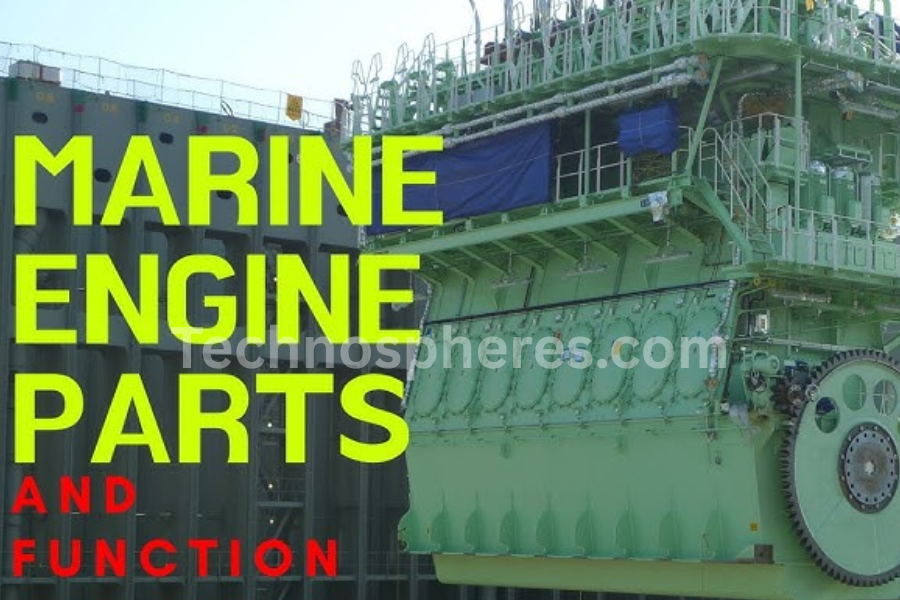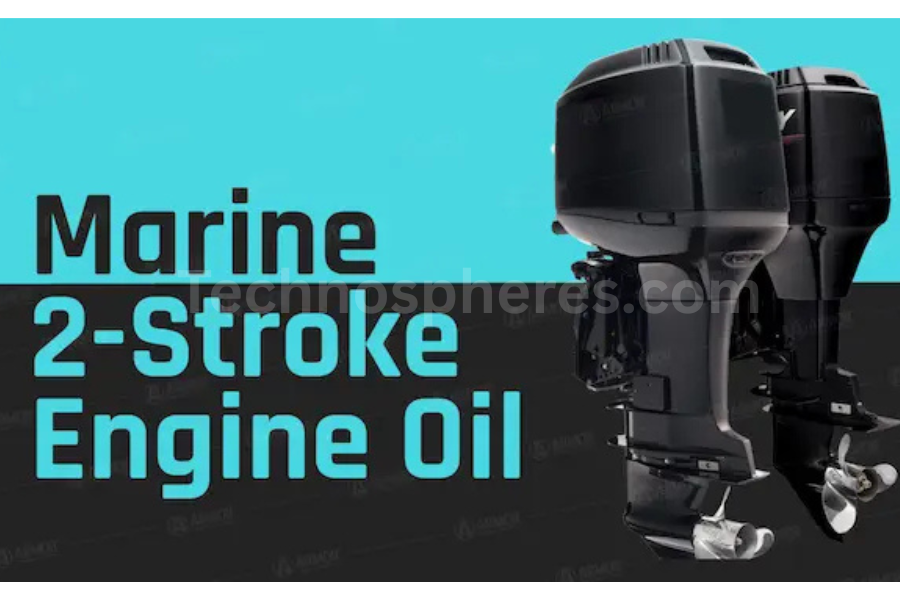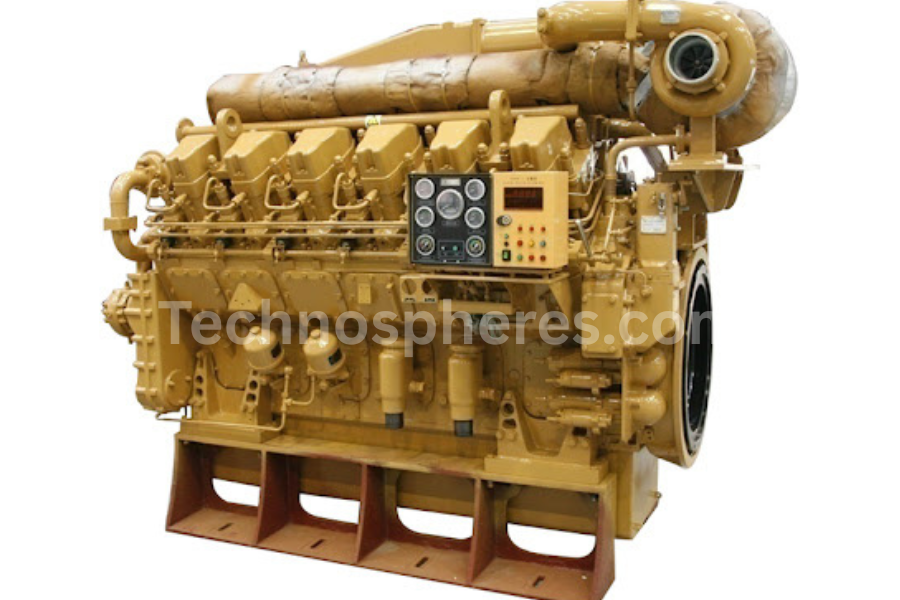
Marine Engine Technology Program in Georgia
Marine Engine Technology Program in Georgia concentrates on the design, operation, management, and repair of engines and propulsion systems functions in marine vessels such as cargo ships, fishing boats, yachts, and naval craft. This concept gathers mechanical, electrical, and fluid dynamic rules to make sure that marine vessels run effectively and with complete safety. Marine engine experts get education to operate on difficult systems adding inboard and outboard motors, diesel engines, steering systems, cooling systems, and others. This technology offers a important role in maritime transport, offshore resource extraction, naval operation, and recreational boating.
Importance of the Field in Global and Regional Maritime Industries
The economy of the world relies heavily on maritime trafficking— more than 80% of international business by volume is made through sea. Marine engines are the basic thing of this transport, making their best service for global transport chains, defense readiness, and power transport. Geographically, especially in coastal states like Georgia, the maritime industry assists great number of jobs in shipbuilding, logistics, port tasks, and fishing. Trained marine engine experts are necessary to lower downtime, making sure vessel safety, reduce environmental effect, and gain to modern green technologies such as hybrid and electric propulsion systems.
Strategic Relevance and Industry Presence
This strategic location makes strong requirement for marine engine experts, especially in port cities and along the coastal corridor. Moreover, Georgia’s maritime groups adding ship repair yards, maritime logistics companies, and government agencies (e.g., Coast Guard, Navy contractors), which collaborate with technical colleges and training centers to support workforce development and innovation in marine technologies.
Marine Industry in Georgia
The Port of Savannah is the fourth-biggest container port in the United States and a better path for things imported and exported of the Southeast. The Port of Brunswick is a frontliner hub for auto imports and bigger cargo. Putting at same place, they assist thousands of jobs and made opportunities for billions annually to Georgia’s economy. These ports make demand not only for logistics personnel but also for well-trained marine experts to maintain and repair the vast fleet of vessels working in and out of the country.
Employment Opportunities and Workforce Demand
Georgia’s maritime sector provides robust employment choices for individuals skilled in marine engine technology. Jobs involve marine diesel mechanics, engine installation technicians, managing engineers, and onboard systems experts. According to geographical labor data, there is a growing shortage of certified marine technicians, which makes this a high-demand and stable career route. The trend leading to eco-friendly propulsion systems is also creating new training areas, such as hybrid and electric marine engines, more diversifying job opportunities.

Government and Private Sector Investments
Georgia has seen notable role from both government and private sectors to empower its maritime areas. State-led beginning opportunities like Georgia Ports Authority (GPA) expansions, workforce progress grants, and partnerships with technical colleges make sure a pipeline of skilled workers. On the other hand, companies like Gulfstream Marine, Colonial Terminals, and international shipping firms engage in employee schooling and equipment modifications. These investments improve job prospects for graduates of marine engine programs and assist presently continued innovation in the industry.
Overview of Marine Engine Technology Programs
What Is a Marine Engine Technology Program?
A Marine Engine Technology Program in Georgia is a vocational or technical learning track that prepares beginners for careers in the management, repair, and tasks of marine propulsion systems. These programs are mostly provided by technical schooling centers or maritime schooling institutes and focus on hands-on, industry-related training. Students learn to predict and solve issues in marine diesel and gas engines, electrical systems, and hydraulic parts. The programs mix classroom instruction with lab tasks and mostly add internships or cooperative experiences with marine works.
Curriculum and Skill Development Areas
The curriculum of a normal marine engine technology program explains:
- Diesel and gasoline engine operators
- Electrical and electronic troubleshooting
- Hydraulics and pneumatics
- Marine fuel systems and emissions control
- Engine performance diagnostics
- Safety process and environmental compliance
Students also make soft skills such as teamwork, communication, and problem-solving—critical for operating in fast-speed, safety-sensitive maritime surrounding. The focus on implemented learning make sure graduates are ready to enter the workforce as soon as possible.
Certifications and Credentials Awarded
Once finished, students can receive an Associate Degree, Diploma, or Technical Certificate of Credit (TCC) in maritime engine technology. Many courses also get pupils ready for sector-recognized credentials including:
- Certification from ABYC, the American Boat and Yacht Council.
- NMEA (National Marine Electronics Association) certifications
- EPA Section 609 for refrigerant handling
- Often required by elite marine businesses, these credentials boost employability.
Offering the Program Institutions in Georgia
Savannah Technical College
One of the most well-known marine engine technology programs in Georgia is offered by Savannah Technical College. Set close to the Port of Savannah, the program is ideally suited for business engagement. Students get practical instruction in diagnosing, marine propulsion systems, fuels, and electrical systems. The college has strong relationships with local marine companies, which expedite graduate employment transition.

Alternative Technical Institutes or Training Centers
- Renowned for diesel engine instruction pertinent to marine and heavy machinery, Coastal Pines Technical College.
- Ogeechee Technical College provides mechanical courses adaptable to marine systems.
- Though inland, Lanier Technical College offers strong diesel engine programs that cross with maritime career paths.
- These colleges frequently work with nearby business to change courses or provide marine specific modules.
Apprenticeships and Industrial Partnerships
Strong industry collaborations help Georgia’s marine engine programs to prosper. Firms like Colonial Terminals, Southern Marine, Yamaha Marine, and Brunswick Boat Group offer:
- Placement of apprenticeships
- Guest talks and demonstrations
- Sponsoring of engines, tools, and training supplies
- Direct recruiting from graduation classes
Some students also enroll in cooperative programs, therefore switching between paid work experience and classroom instruction. This dual approach improves skill retention and employability.
Capabilities and Career Paths
Soft Skills and Technical Abilities Developed
Students leave with a combination of soft and technical skills:
Technical Competences:
- Engine repair and diagnostic
- Maintenance and installation of systems
- Electronic problem-solving
Applying marine-specific tools and programs
Soft Skills:
- Problem solving under actual circumstances
- Technical reporting and communication
- Teamwork on big repair jobs
- Management of time and project coordination
Career Roles
| Job Title | Primary Responsibilities | Typical Workplace |
| Marine Technician | General management and repair of marine engines | Marinas, ports, yacht services |
| Engine Repair Specialist | Overhaul, rebuild, and test marine engines | Engine repair shops, fleet services |
| Outboard Motor Mechanic | Specialized for small boats | Dealerships, recreational marine centers |
| Marine Electrician | Install, maintain, and troubleshoot electrical systems on boats | Shipyards, marine equipment manufacturers |
| Service Manager | Supervise repair teams, handle diagnostics, make sure safety compliance | Large shipyards, marine fleets, port services |
| Apprentice/Junior Technician | Entry-level role | Schooling centers, under supervision |
Industry Certifications
- ABYC: Acknowledged safety and installation criteria for maritime systems.
- Certification for mounting and repairing maritime electronics comes from NMEA (National Marine Electronics Association).
- EPA Section 609: Technicians dealing with marine HVAC systems’ refrigerants must have it.
- Certifications in safety approved by all big businesses under OSHA 10/30Hour Cards.
- These qualifications can provide specialization opportunities and raise employability, therefore boosting starting salaries.
Cooperation between sectors and developments
Local Marine Businesses and Employers
Marine Engine Technology Program in Georgia initiatives have close ties to local companies including:
- One of the leading outboard engine makers, Yamaha Marine Group is headquartered in Kennesaw, Georgia.
- Provides logistical and fleet services that call technical assistance. Colonial Terminals
- Known for leisure boats and marine systems, Brunswick Boat Group has locations in southeast Georgia.
- Savannah Riverboat Cruises and Tug Operators provide actual training facilities.
- For students, these partnerships improve access to job placements, equipment gifts, guest lectures, and internships.
Technology Trends (Hybrid Engines, Smart Diagnostics)
| Technology Trend | Description |
| Hybrid Propulsion Systems | Gathers electric motors with conservative fuel engines to reduce explosion |
| Smart Diagnostics | Connected sensors and software for real engine monitoring and issue finding |
| Remote Maintenance Tools | Cloud-based systems letting offsite diagnostics and resolve planning |
| Fuel Efficiency Enhancements | New engine designs and fuel additives to enhance performance |
Research and Development
Particularly those close to industrial areas, certain marine programs in Georgia expose participants to R&D initiatives in cooperation with:
- Manufacturers of engines
- Departments of engineering and universities
- Pilot sites for green tech or governmental marine labs
These collaborations can include:
- Testing pre-production engine models
- Participating in research on emissions
- Supporting intelligent sensor creation
- For coastal sustainability projects, students might help with environmental monitoring or data collecting.
Achievements of Former Students
Workforce Graduate Case Studies
Many graduates from Savannah Technical College and like schools have gone on to:
- Work for worldwide businesses like Yamaha, Volvo Penta, or Mercury Marine
- Run their own marine repair companies around Georgia’s shore.
- Move forward into specialized electronics, diagnostics, or hybrid systems or into supervisory roles.
- One former began as a marine tech apprentice in Brunswick and now oversees regional services for a leading fleet service business, for instance.

Local Maritime Economic Contributions
By helping to maintain Marine Engine Technology Program in Georgia infrastructure, graduates:
- Maintaining commercial and recreational boats in top shape
- Encouragement of marine transport and ecotourism sectors
- Helping to lower engine emissions and improve safer operations along state waterways
- These experts promote innovation, safety, and economic expansion in Georgia’s active maritime ecosystem by filling key technical positions.
Key Points’ Summary
- Particularly in coastal states like Georgia, marine engine technology is essential to both the local and international maritime economy.
- Strong educational programs led by Savannah Technical College and backed by industry partners train the next generation of marine technicians in Georgia.
- Students are workforce-ready as they acquire technical ability, certificates, practical experience, and career placement assistance.
- Growing sustainability needs and developments in engine design are changing the industry, therefore necessitating modern pattern and more training facilities.
- For the economic and environmental vitality of Georgia’s ports and coastal areas as well as for personal careers, the marine engine technology program is imperative.
The part of the Program in determining the direction of maritime technology in Georgia
In Georgia, this program acts as a springboard for maritime innovation. By:
- Giving students cutting edge competencies
- Linking talent with industry demands
- Improving green initiatives
- Supporting local maritime businesses and port activities
Frequently Asked Questions
What criteria must you meet to register?
Most programs call for:
- A GED or high school diploma
- Elementary math and science abilities
- Because of the hands-on nature of the work, some may want placement testing or documentation of physical fitness.
- One doesn’t need any prior marine experience.
How long does the program take?
The length varies according on the credential:
- Technical Certificate of Credit (TCC): 6–12 months
- Diploma Program: 12 to 18 months.
- Associate Degree (if offered): Around two years
- Depending on the school, programs might be either fulltime or parttime.
Are there online or hybrid learning opportunities?
Although the hands-on nature of marine engine work necessitates in-person training, many colleges:
- Provide online theory courses.
- Use hybrid arrangements—online lectures plus in-person laboratories.
- Offer virtual simulation aids for system diagnostics.
Graduate salary on average?
Georgia entry-level marine technicians often make:
- $18 to $25 an hour or
- $38,000–$52,000 per year
Read more about Technology on Technospheres.



